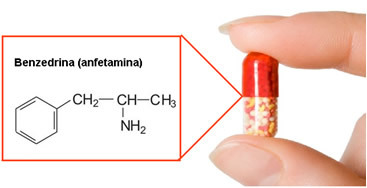Throughout the history of human society, the standard of beauty has shown itself to be quite variable according to time and place. There was a time, in the Renaissance, when a woman who was considered beautiful had to be “chefier”, because this indicated that she had an economic condition that allowed her to eat "well", something rare in that era.
Today, the opposite happens, the standard of beauty is a woman endowed with a thinness that borders on malnutrition. However, both of these standards are contrary to health and well-being norms. Problems such as anorexia and bulimia have been triggered due to the imposition of a standard of beauty that attacks people's self-esteem (and that, many times, it is not even possible to be achieved, keeping the health).

On the other hand, obesity is indeed a high health risk factor, being considered by the Organization World Health (WTO) as a chronic disease that can lead to heart problems, diabetes, cholesterol high, etc.
Thus, many obese people - especially young people, who are quite influenced by the media, advertisements and concepts of other people - they end up resorting to the use of drugs (medicine, drugs and medicines) as a treatment against obesity. But several questions arise:
- Do drugs really help you lose weight?
- What are the risks and benefits of this type of treatment?
- Are the medicines alone enough for the person to stop being obese?
Understanding the chemical composition of these drugs and their effects can help to clarify these questions.
Chemistry has developed several drugs that are, yes, extremely important in the treatment of obesity. For example, some act on the hypothalamus, which is the part of the brain that controls appetite. Thus, there are drugs that reduce hunger (catecholaminergics) and others that increase satiety (serotoninergics).
There are also those that decrease fat absorption.
In Brazil, in 1999, we had the launch of orlistat (Xenical®), the first selective inhibitor of intestinal lipases, which are responsible for the cleavage and subsequent absorption of acids fatty.
However, if these “weight-loss drugs” are not administered correctly, they can even kill.Cases of this type occur with the use of amphetamines, organic substances from the amine group, which act on the central nervous system, reducing the feeling of fatigue and reducing appetite. The main amphetamine is amphetamine, whose formula is shown below:

This medicine, known as "ball", cannot be used without medical advice, as its side effects are very dangerous. In addition to chemical dependency, other effects are: headaches, palpitations, chronic increase in blood pressure and "amphetamine psychosis", which is a crisis similar to schizophrenia, in which the person has hallucinations and becomes more aggressive.
Studies show that students who use amphetamines have their behavior changed, becoming aggressive, disrespectful, careless, disinterested and when taking school exams, they are insecure and may answer things that are not related to the subjects requested in the questions.
The biggest problem with using these drugs is thelack of medical advice. Many use these remedies unnecessarily. In addition, a fact that a person should keep in mind is that the use of drugs in the treatment against obesity and even medical procedures are not enough for permanent loss of weight.
That's why the Ministry of Health will carry out a campaign in more than 2,500 municipalities, from March 5 to 9, 2012, with the theme: Prevention of obesity in childhood and adolescence, initiative integrated to the Brazil without Extreme Poverty Program, launched by the Presidency of the Republic in 2011. This campaign will promote several actions aimed at preventing and controlling obesity, in public schools in the country, for students aged between 5 and 19 years.
It will be shown that obesity treatment is based on physical exercise and changes in eating habits. When excess weight poses a health risk or there is an ineffectiveness of the basic treatment, then a patient support follow-up by specialists.
This monitoring will be done by Family Health teams linked to the Basic Health Unit (UBS), who will travel to to school to examine children and develop educational practices for the promotion, prevention and assessment of health conditions. In addition, community visits to Basic Health Units will also be scheduled, an action provided for within the Health Closer to You strategy.

Only in the cases mentioned where there is a health risk and when the change in eating habits combined with activities does not work, it is for the doctors to decide if it is necessary to associate or not drugs or procedures surgical procedures. For this, several factors are considered, such as age, sex, physical type, family constitution, race, cultural factors and evaluation of eating habits.
By Jennifer Fogaça
Graduated in Chemistry
Source: Brazil School - https://brasilescola.uol.com.br/saude-na-escola/remedios-para-emagrecer-funcionam-mesmo.htm

